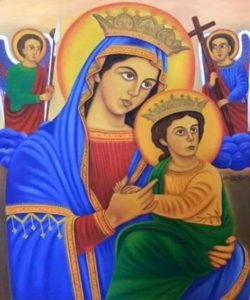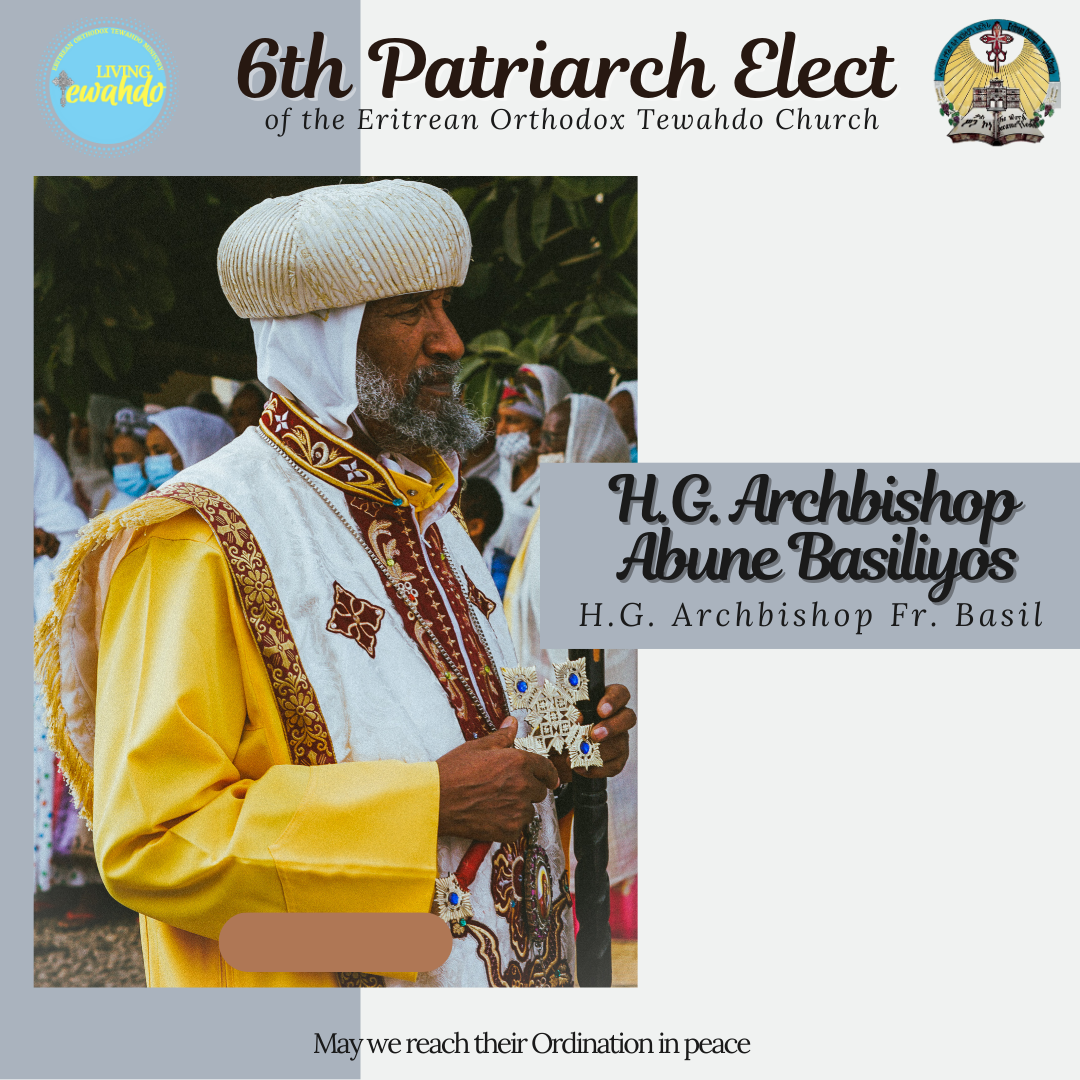In the name of Father, the Son, and the Holy Spirit, One God, Amen!
“Holy, pure, shining, and praiseworthy,” acclaims St. Ephraim the Syrian in The Praises of St. Mary to Theotokos. Our Lady the two-fold virgin, is also praised by the Angel Gabriel, “Highly favored one, the Lord is with you; blessed are you among women!” Saint Mary was chosen from the beginning to give birth to the word of God. God by His grace and wisdom preserved her from the sin of Adam. Isaiah spoke about her exemption, “Unless the Lord of hosts had left to us a very small remnant, We would have become like Sodom, We would have been made like Gomorrah” (Isaiah 1:9). The remnant stated by the prophet is the Virgin Mary. St. Ephraim known as the lyre of the Holy Spirit added, "Thou and Thy Mother are alone in this. You are wholly beautiful in every respect. There is in Thee, Lord, no stain, nor any spot in Thy Mother."
Ezekiel’s sealed door was truly sealed with a great marvelous seal so that original sin does not pollute it. The Blessed Virgin Mary was born without Adam’s original sin. She is free from original sin because She is the tabernacle of God the Son. God the Father dwelt in her to strengthen Her and God the Holy Spirit dwelt in Her and protected her in her mother’s womb to keep her pure, preparing Her to be His tabernacle. That is why David said, “God is in the midst of Her and She shall not be moved.” Similarly, King Solomon, in his deep and mysterious songs, praised her by saying: “You are all fair, my love, And there is no spot in you. Come with me from Lebanon, my spouse, With me from Lebanon…” (Song of Solomon 4:7-8).
Aba Giorgis of Gasicha, a 14th C. Ethiopian theologian stated in his book known as The Book of Mysteries: “He who does not know sin took the flesh of sinners and judged sin. He took flesh from the daughter of sinners, who herself, is but pure in flesh and soul. Her father’s sin did not touch Her Son.”
Virgin Mary is free from original and personal sin. Sin entered the world first when Adam and Eve disobeyed God and ate from the tree that was not allowed for them to eat (Gen 2:16-17, Gen 3:1-24, Romans 6:23). Because of this, man’s nature became corrupted. However, this corruption doesn't apply to St. Mary.
Definitions:
Original sin: not technically just the sin of eating the fruit, rather disbelief: denouncing God (Kihdet) or lack of faith (Godolo E-mnet) and wanting to be like God which all ultimately led to the action. There is a difference between the Eastern and Western views of the root of original sin. Western believes it is because of disobedience (focus on the action) and Eastern believe it is because of disbelief (focus on the cause) as stated above.
Consequences of original sin:
- Mortality (Mowati)
- Fall from grace; (wudqet kibri tsega)
- Leaving the Garden of Eden and becoming a stranger/refugee (Sidet kab genet t nab Midri)
- They lost their peace; they became stressed and worried ( Selam Seanu : techenequ)
- Spiritual growth was halted/stunted (Menfesawi Ebit tequaritsu); they were created to live a life of holiness and spiritual growth
So, did St. Mary bear those consequences?
- No, those 5 she did not take on.
- Adam and Eve were fallen from grace and she was called “Full of Grace (Mili’ite Tsega)”
- As of now, we are free from original sin, but we still sin (by choice). So, St. Mary chose to not sin, she is still hailed for being a virgin in body and conscience.
- God chose her; she was in His mind before time. She was in His mind before time for the purpose of SALVATION.
Salvation:
There are different types, but one is salvation from pending punishment (kab meqtsaeti si-o-l).
Types of Salvation:
- To be saved from the consequences of original sin as listed above
- To know our creator
- To be a new creation (Baptism)
- Baptism is for the remission of sins/original sin (including children) as stated in the Creed. This remission of sin is not only for personal sin but for original sin as well.
- Looking like God in holiness
- We are made in His image and likeness; this refers to the following:
- Image of God: nebabit, tenagarit, hiyawit (reasoning/conscious, speaking, living)
- Likeness of God: holiness
Glory be to God
Glory be to His Virgin Mother
Glory be to His Holy Cross
EROTM


